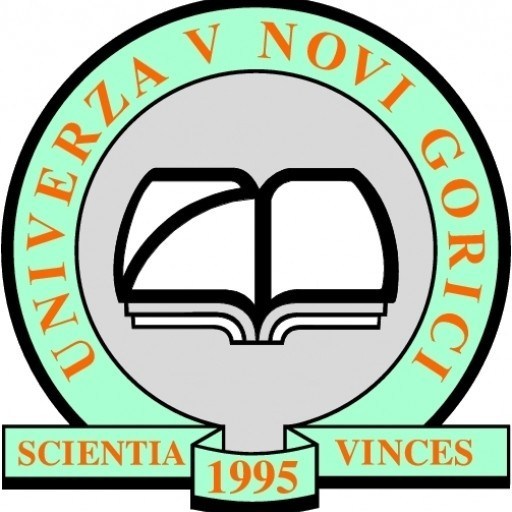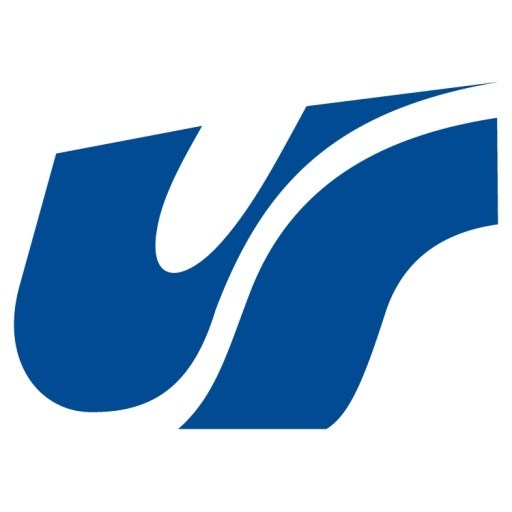Photos of university / #univerza.v.novi.gorici
Descrition: The Karstology undergraduate program at the University of Nova Gorica offers students a comprehensive education in the unique geological, hydrological, and environmental features of karst landscapes. This interdisciplinary program combines aspects of geology, geography, ecology, and environmental sciences to provide students with a deep understanding of karst phenomena, including caves, sinkholes, underground rivers, and their impact on ecosystems and human activities. Throughout the course of study, students will engage in theoretical learning complemented by practical fieldwork, laboratory analyses, and research projects aimed at studying karst formations and processes. The curriculum is designed to develop skills in scientific investigation, data analysis, and geographic information systems, enabling graduates to contribute effectively to environmental management, conservation efforts, and sustainable development in karst regions. Moreover, students will gain knowledge about the natural hazards associated with karst terrains and learn strategies for their mitigation. The program also emphasizes the importance of preserving the cultural and natural heritage of karst areas, fostering a sense of responsibility toward environmental stewardship. Graduates will be prepared for careers in academia, research institutions, environmental consultancy, geological exploration, and regional planning. They will have the opportunity to participate in international research projects and collaborate with multidisciplinary teams dedicated to understanding and preserving karst landscapes. The University of Nova Gorica’s Karstology program is ideal for students passionate about Earth sciences, environmental protection, and sustainable development, providing them with the skills, knowledge, and experience necessary to address the challenges faced by karst regions worldwide.
The Karstology (Third Level) program at the University of Nova Gorica offers an in-depth exploration of the unique geological, hydrological, and environmental features of karst landscapes. This advanced degree is designed for students who wish to develop a comprehensive understanding of karst processes, phenomena, and their significance within broader Earth sciences. The curriculum encompasses a wide range of topics, including karst hydrology, geomorphology, hydrogeology, speleology, and the environmental challenges associated with karst terrains. Students will engage in both theoretical studies and practical fieldwork, gaining hands-on experience in karst investigation techniques, cave exploration, and environmental monitoring. The program emphasizes interdisciplinary approaches, integrating geology, hydrology, ecology, and environmental science to provide a holistic understanding of karst systems. Throughout the coursework, students will analyze case studies from different karst regions, with particular focus on the limestone and dolomite formations typical of the Slovene Karst area. The program also explores the significance of karst landscapes for biodiversity, water resources, and sustainable development, preparing graduates for careers in research, environmental management, water regulation, and geosciences. Advanced modules include GIS and remote sensing applications, modeling of hydrogeological systems, and conservation strategies. To enhance their professional competencies, students participate in research projects, internships, and excursions to prominent karst sites. Upon completion, graduates will be equipped with the expertise needed to accurately assess, manage, and protect karst environments, contributing to scientific knowledge and sustainable development initiatives. This program invites motivated students passionate about Earth sciences and environmental challenges to join a dynamic academic community dedicated to understanding and preserving one of the Earth's most fascinating and vulnerable landscapes.
Program requirements for the Karstology (Third Level) at University of Nova Gorica typically include a combination of prerequisites, academic credentials, language proficiency, and specific coursework. Prospective students are generally required to have completed a relevant undergraduate degree, such as a Bachelor's degree in Earth Sciences, Geography, Environmental Sciences, or a related field, demonstrating a solid foundation in geological and environmental principles. Applicants must submit academic transcripts, a curriculum vitae, and a motivation letter outlining their interest and goals related to karstology. Proficiency in English is essential, with applicants often required to provide evidence through standardized tests such as TOEFL or IELTS, unless their previous education was conducted in English. Additionally, some programs may require letters of recommendation from academic or professional references who can attest to the applicant’s ability to undertake advanced studies in this specialized field.
Applicants may need to pass an interview or assessment to evaluate their motivation and suitability for the program. Candidates should have a strong background in geological mapping, sedimentology, hydrology, and environmental monitoring, as these skills are integral to advanced karstological research. Certain prerequisites might include coursework in geomorphology, hydrogeology, and mineralogy, although specific requirements can vary. Students are expected to demonstrate a capacity for independent research, critical thinking, and analytical skills necessary for fieldwork and laboratory studies central to karst studies. The program may also require applicants to have basic computer skills, including GIS and statistical data analysis.
Funding and scholarships could be contingent upon academic merit or financial need, and applicants should be prepared to submit the relevant documentation to qualify for financial support. The University may also require international students to provide proof of residence or legal stay in Slovenia, along with health insurance documentation. Overall, the program aims to cultivate experts in karstology capable of understanding complex karst ecosystems, managing natural resources responsibly, and contributing to scientific advancements in the field.
The financing of the Karstology (Third Level) program at the University of Nova Gorica is primarily supported through a combination of public funding, student tuition fees, and possible external grants. As an accredited higher education program in Slovenia, it benefits from national funding mechanisms aimed at promoting advanced scientific and research education. The Slovenian Ministry of Education, Science and Sport allocates funds to universities based on various criteria, including the university’s strategic priorities and research output, which directly impacts the financial resources available for the Karstology program.
Tuition fees are also a significant source of funding for the program. These fees are determined by the university's regulations and are paid by students enrolled in the program. The fee structure may vary for Slovenian and international students, with subsidized rates typically available for domestic students in accordance with national higher education policies. The university offers opportunities for students to apply for scholarships and financial aid programs, which can offset the costs of tuition and living expenses, thereby making the program accessible to a broader range of applicants.
Additionally, the University of Nova Gorica actively seeks external funding through research grants, national and international projects, and partnerships with governmental agencies, research institutions, and industry stakeholders involved in karstology and related fields. These external funds support not only research activities but also the development of educational resources, internships, fieldwork, and conferences, which are integral parts of the program.
Furthermore, the university encourages student involvement in research projects secured through competitive grants, providing stipends and financial support for students engaged in advanced research activities. The program also benefits from European Union funding programs, such as Erasmus+, which facilitate mobility and joint research initiatives, further enhancing the financial sustainability and international integration of the program.
In summary, the financing of the Karstology (Third Level) program at the University of Nova Gorica is a multifaceted system that relies on national public funding, student tuition, scholarships, external grants, and international funding programs. This diversified approach ensures that the program can offer high-quality education and research opportunities, maintain state-of-the-art facilities, and support students in their academic and professional development in the field of karstology.
Karstology at the University of Nova Gorica is a specialized interdisciplinary program focused on the study of karst landscapes, geology, hydrology, ecology, and environmental management related to karst regions. The program aims to equip students with a comprehensive understanding of the formation, development, and dynamics of karst landscapes, which are characterized by soluble rock formations such as limestone and dolomite. Students will explore various aspects including geomorphology, hydrogeology, geotechnics, and environmental sustainability, preparing them for careers in research, environmental protection, land management, and sustainable development in karst environments.
The curriculum covers core topics such as karst systems and processes, surface and subsurface hydrology, geology and geotechnics of karst terrains, biodiversity and ecosystems in karst regions, and the impacts of human activity and climate change on karst landscapes. Practical training is a key component of the program, providing students with fieldwork experience in karst terrains, laboratory analysis, and GIS and remote sensing techniques for spatial data interpretation. Interdisciplinary collaborations are encouraged, enabling students to work with experts from geology, biology, environmental sciences, and engineering.
Graduates from this program will be prepared to address challenges related to water resource management, natural hazard mitigation, conservation of biodiversity, and sustainable tourism development within karst areas. The program also emphasizes research skills, critical thinking, and innovative problem-solving methods, preparing students for careers in academia, government agencies, environmental consulting, and non-governmental organizations. Upon completion, students receive a Master's degree in Karstology, which qualifies them for advanced professional roles and doctoral studies.
The University of Nova Gorica's facilities support a practical learning environment, including well-equipped laboratories, GIS and remote sensing software, and access to karst sites for field studies. The program maintains strong connections with national and international research institutions, providing students with opportunities for internships, research projects, and academic exchange. Overall, the program strives to promote sustainable practices and protect karst environments through qualified professionals trained in scientific research and ecological stewardship.









